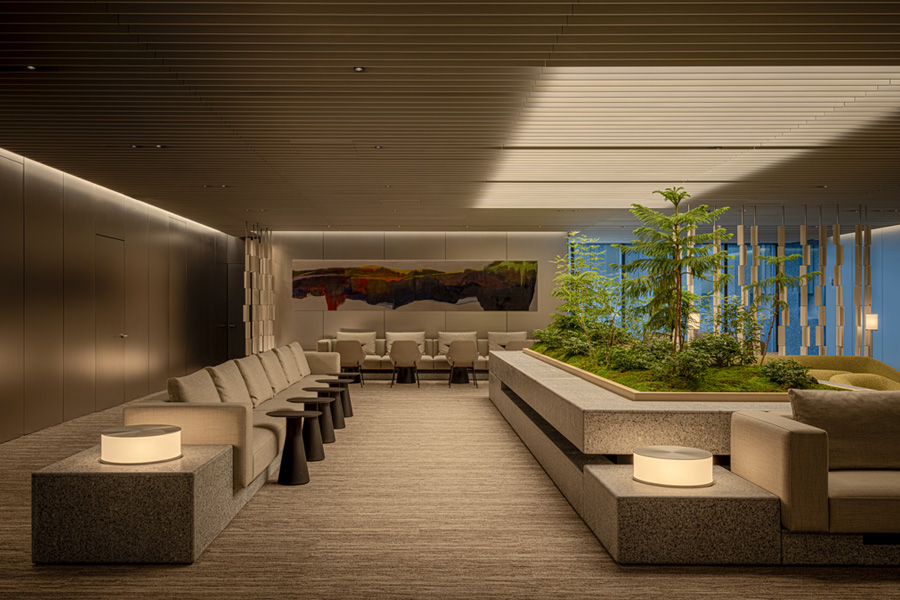Travel’s future remains unknown as the landscape continues to change, Sidewalk Labs ends its Quayside Development in Toronto, and designers share their at-home workspaces. All this and more in this week’s Five on Friday.
The future of travel remains unknown

According to a recent survey by Skift Research, one-third of Americans say they hope to travel within three months following a lift in restrictions. Amid many uncertainties and questions about the future of travel, The New York Times compiled a series of inquiries on the industry’s fate, and tasked experts in fields including design, academia, and tourism with how experiences may change as countries and regions begin to reopen. Questions addressed concerns ranging from “Could check-in actually get better?” to “Is cleaning the new amenity?” and “Is the green wave over?”
The article claims that, as of May 6th, 100 million jobs in the travel sector have been or will be eliminated worldwide. Airline travel currently remains down 95 percent year-over-year and international passenger revenues are slated to drop by more than $300 billion. Hotel occupancy rates in the U.S. currently hover around 25 percent as well.
Sidewalk Labs ends Quayside neighborhood project in Toronto

Daniel L. Doctoroff, CEO of Google affiliate Sidewalk Labs revealed in a Medium post that the company will no longer pursue the Quayside neighborhood project in Toronto. Sidewalk Labs announced its partnership with Waterfront Toronto on the endeavor nearly three years ago. Snøhetta and Heatherwick Studio were also tapped to lend design expertise to the innovative, sustainability-oriented project.
“As unprecedented economic uncertainty has set in around the world and in the Toronto real estate market, it has become too difficult to make the 12-acre project financially viable without sacrificing core parts of the plan we had developed together with Waterfront Toronto to build a truly inclusive, sustainable community,” Doctoroff writes in his post. “And so, after a great deal of deliberation, we concluded that it no longer made sense to proceed with the Quayside project and let Waterfront Toronto know yesterday.”
M-Rad proposes mobile COVID-19 testing units

Architecture and design practice M-Rad has revealed renderings of a proposed mobile COVID-19 testing unit design. Dezeen writes that the concept would be composed of copper alloy for its antipathogenic properties. Unlike steel or plastic, the material is able to decay the virus within four hours. M-Rad’s proposal comprises six trailers equipped to carry out a total of 3,500 daily tests across 18 different regions of Los Angeles. The firm drew inspiration from existing portable medical units in South Korea, conceived to mirror conventional social volumes like phone booths.
Gensler outlines next steps for the hotel industry’s recovery

Gensler principal Tom Ito outlined seven considerations necessary for the recovery of the hotel industry following the pandemic. The post was published as part of the firm’s ongoing exploration of how design is responding to the COVID-19 pandemic. Ito’s seven points include: continue to be beacons for the community, think local first, promote a culture of safety, lean into human connection, prioritize wellbeing, use design to promote good health, and build-in resilience. “Whether it’s a health crisis, wildfire, or natural disaster, hotels will continue to be the place that puts personal interactions and emotional connections at its core to enhance the lives of all humankind,” Ito writes. “This is the moment to expand that role and prepare for the next challenge.”
Designers at Home

The first in a three-part series, HD spoke with four designers on the trials and tribulations of the transition to working from home. Designers shared images of their workstations and chatted with us about adapting to this new reality, how they’re finding inspiration, and what they miss most. Each giving a glimpse of what working for home has been like. This iteration includes David Ashen of dash design, Christine Gachot of Gachot Studios, Andrew Alford of Andrew Alford Creative, and Meg Prendergast of The Gettys Group.



